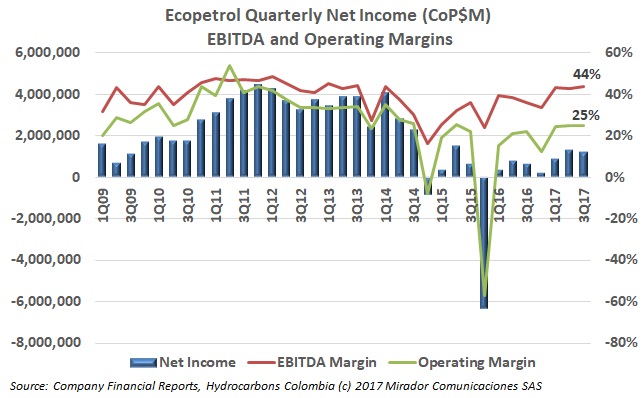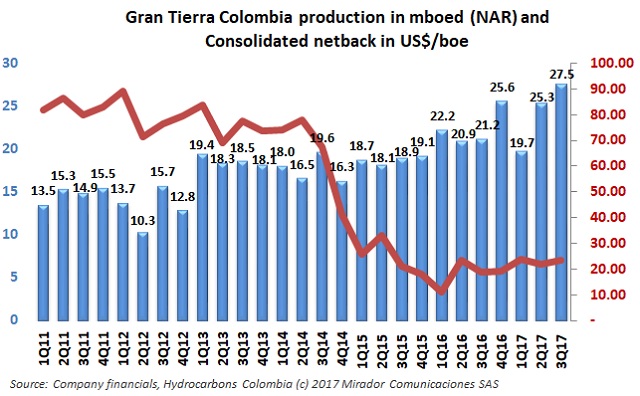The union spoke about the strike that workers are currently developing at Occidental de Colombia’s (OXY) wells in Arauca, and called for the company to respect the Collective Labor Convention (CCT).

ProductionParex (TSX: PXT) announced its financial and operating results for the third quarter of 2017. The firm reported successfully drilled wells once again, oil production growth and positive net income.
The Canadian Colombian Chamber of Commerce (CCCC) hosted the ‘Regulatory Perspectives for the Energy Mining Sector’ forum. HCC attended the event.
National Hydrocarbons Agency (ANH) Technical Vice President, Jairo Osorio, said that fracking has not been authorized or developed in Colombia and added that an initial exploration phase to determine whether there are unconventional reserves in the country has just begun.
The Colombian oil sector has faced some tough years, leading to few exploration projects and a reduction in production and reserves. However, the industry is showing a recovery in key metrics and this behavior is increasing expectations and perspectives.
The construction of new regasification plants has been a subject of much interest and controversy in the country. Companies have shown their interest in these projects. Jaime Orjuela, President in charge of TGI, spoke on this subject and the company’s plans.
Although the industry’s situation in Colombia is still quite complex, the Executive President of the Colombian Chamber of Petroleum Goods and Services (Campetrol) Germán Espinosa, was optimistic about the future of the sector in the country.

Ecopetrol (NYSE: EC) announced its third quarter and year-to-date (YDT) 2017 results. The firm highlighted that YTD net income continues to increase. The NOC’s reported margins are at their highest in the past two years.
GeoPark (NYSE: GPRK), Ecopetrol (NYSE:EC) and Equion gave a positive report on their social investment projects in Casanare and Meta. These and other Corporate Social Responsibility (CSR) stories in our periodic summary.

ProductionGran Tierra Energy Inc. (TSX: GTE) announced its financial and operating results for third quarter of 2017. The company highlighted that its production increased and reiterated its strategy to focus onColombia.